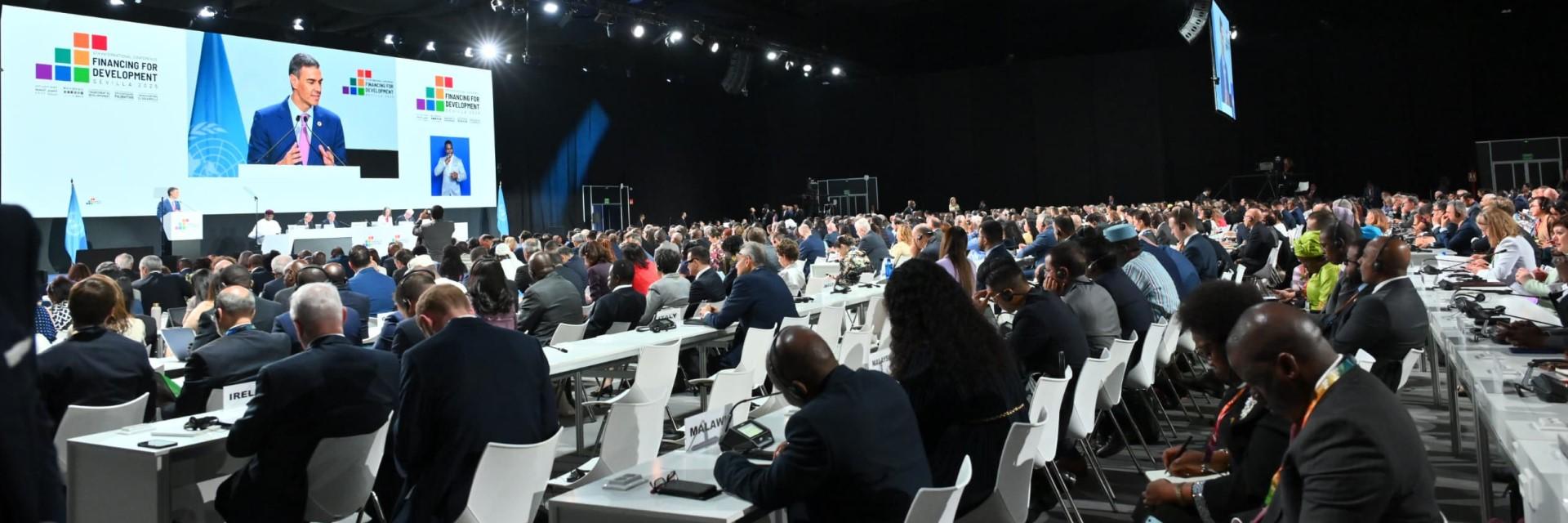Sevilla Commitment: A New Global Roadmap that Seeks Enhanced Investment in SDGs & Tackle Debt Crisis - ENA English
Sevilla Commitment: A New Global Roadmap that Seeks Enhanced Investment in SDGs & Tackle Debt Crisis

Addis Ababa, July 6, 2025 (ENA) --- The Sevilla Commitment and Platform for Action advance concrete strategic steps to fulfil the promise of the Sustainable Development Goals (SDGs) and chart a path for a fairer shared future, reaffirming the role of global cooperation.
The Fourth International Conference on Financing for Development concluded in Sevilla, Spain, this week with 130 initiatives turning the Sevilla Commitment or Compromiso de Sevilla into action through concrete steps to boost investment in sustainable development, address the debt crisis afflicting many of the world’s poorest countries, and give developing countries a stronger voice in the international financing architecture.
The Sevilla Commitment originated from the Fourth International Conference on Financing for Development (FFD4) held in Sevilla, Spain. This global agreement seeks to enhance investment in sustainable development and tackle the debt crisis, especially in developing nations. The commitment represents a revitalized effort to realize the Sustainable Development Goals (SDGs) by reforming the international financial framework and stimulating large-scale investment.
“The human consequences of rising debt burdens, escalating trade tensions and steep cuts to official development assistance have been brought into sharp relief this week,” the United Nations Deputy Secretary-General Amina Mohammed said in closing remarks. “Yet, against this sobering backdrop, the Sevilla conference delivered a strong response—a unifying outcome document focused on solutions that reaffirms the Addis Ababa commitments made a decade ago, renews hope through the SDGs, and shows that multilateral cooperation still matters and still works.
“Let FFD4 be remembered as a conference where the world chose cooperation over fragmentation, unity over division and action over inertia.”
“Sevilla will be remembered not as a landing zone, but as a launchpad for action, to improve livelihoods across the world. Together, we have sent a strong message of commitment and trust in multilateralism that can yield tangible results to put sustainable development back on track,” said Carlos Cuerpo, Spain’s Economy Minister, at the closing press conference.
“This Conference has proven that the United Nations is more than just a space for dialogue; it is a powerful platform for solutions that transform lives,” said Li Junhua, United Nations Under-Secretary-General for Economic and Social Affairs and Secretary-General of the Conference. “In Sevilla, we have demonstrated our collective will to confront the most urgent and complex financing challenges of our time. The Compromiso de Sevilla stands as a testament to our sense of resolve, outlining the commitments, solutions, and actions to put us back on track to achieve the Sustainable Development Goals.”
The Sevilla Commitment, adopted by consensus at the start of the Conference, lays out a path to close the $4 trillion annual SDG financing gap in developing countries. It is the first inter-governmentally agreed financing for development framework since 2015, and a rallying call to overhaul a system that is failing billions of people and pushing global goals further out of reach.
At a time of rising debt, declining investment, shrinking aid and escalating trade tensions, sustainable development faces unprecedented headwinds. The consequences are stark: 3 billion people live in countries that spend more on interest payments than on health or education. With five years left to achieve the SDGs in increasingly uncertain times, the Sevilla Commitment charts a path on three fronts: Catalyzing investment at scale for sustainable development, addressing the debt and development crisis and reforming the international financial architecture.
Under the Sevilla Platform for Action, 130 initiatives were launched over the course of four days of the Conference to begin implementing the Sevilla Commitment. Initiatives focused on boosting public and private investment for sustainable development, including actions to strengthen tax systems and domestic resource mobilization.
New financing mechanisms were announced to tackle unsustainable debt burdens, and additional initiatives aimed to enhance crisis response and climate resilience, expand access to social protection and support local and digital economies, among others.